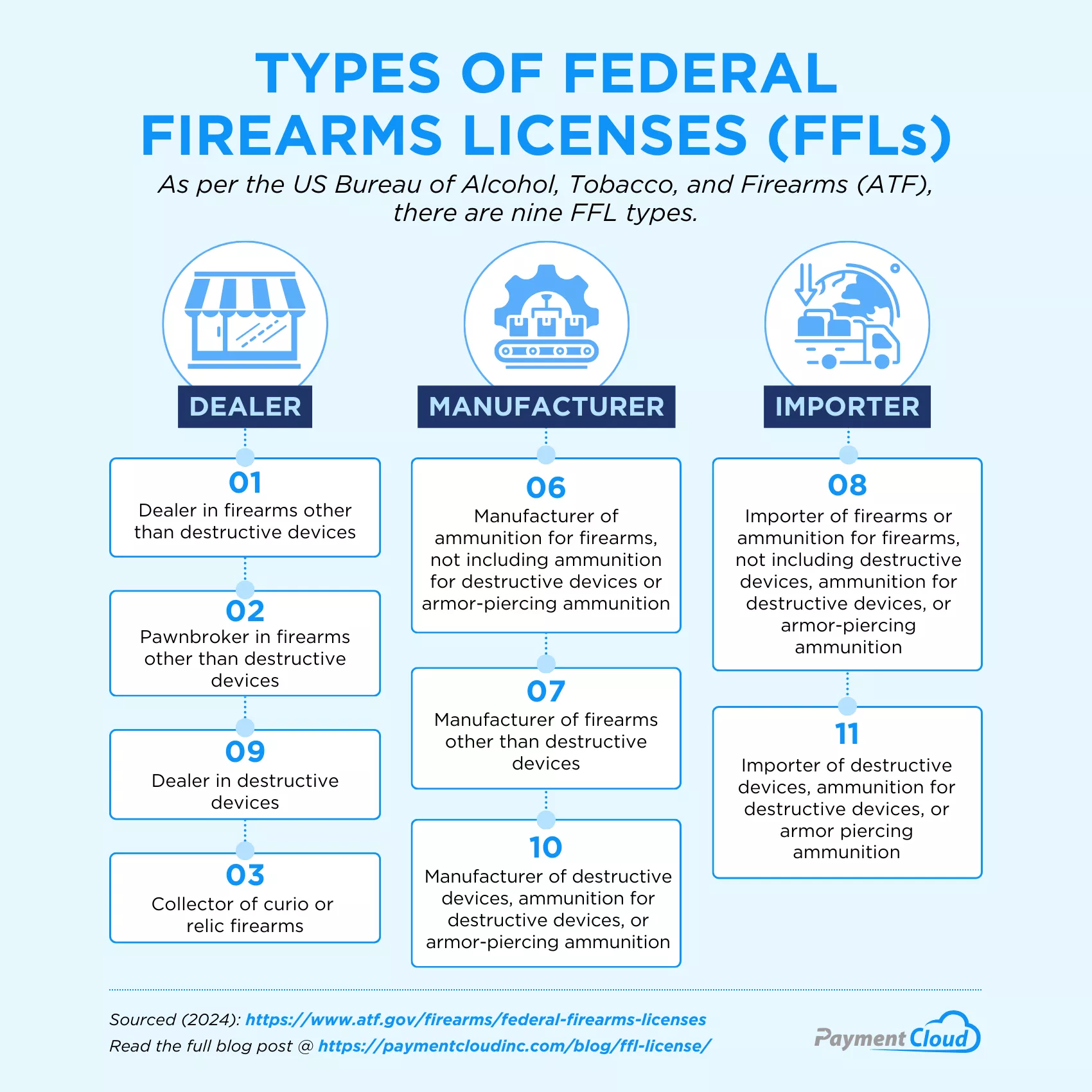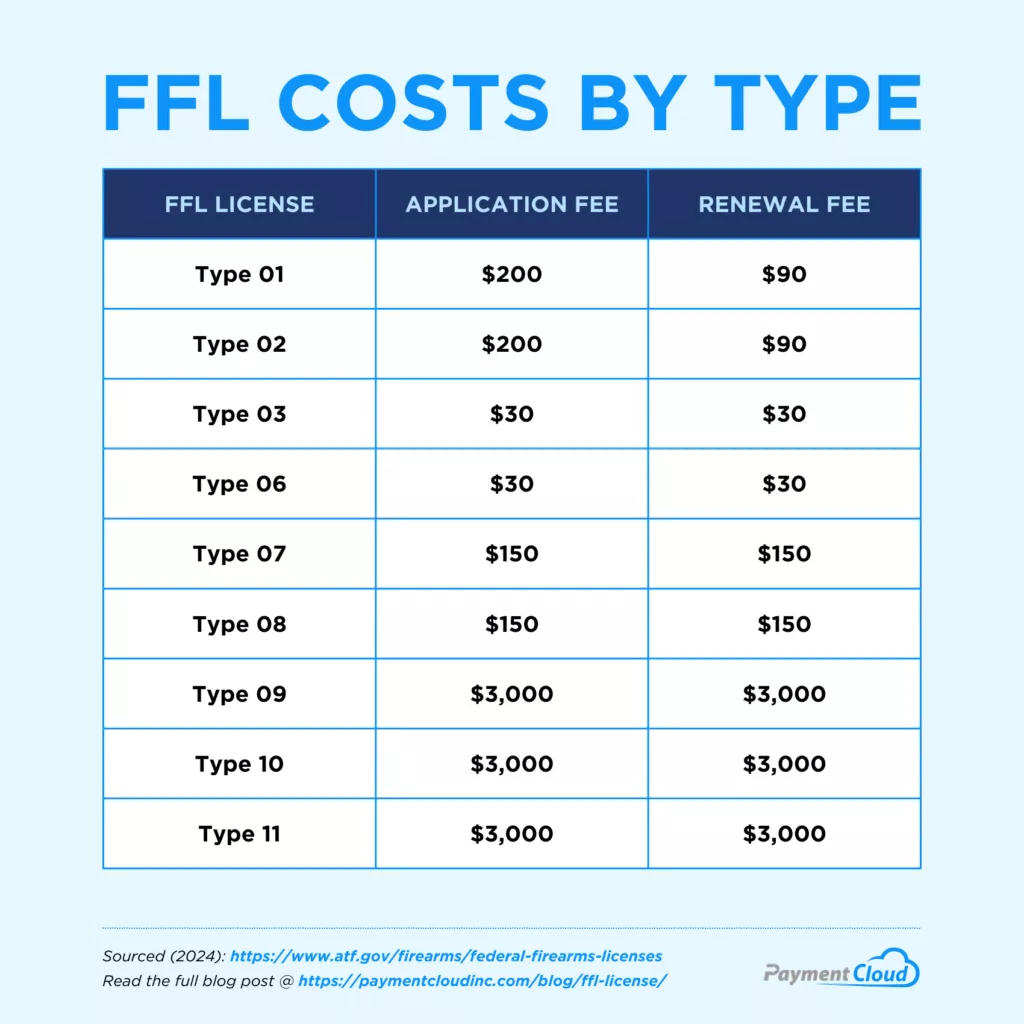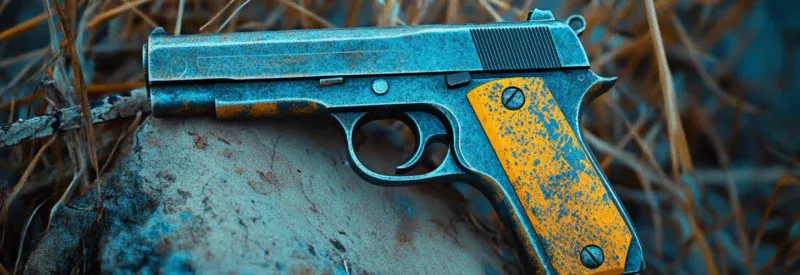Arkansas-based firearm merchants hoping to secure an FFL must be prepared for any obstacles thrown their way. Arguably, the most essential thing they will need to start buying and selling guns and ammo is a federal firearms license.
A Federal Firearms License, or FFL, affords the license holder the legal right to sell, manufacture, or import firearms in North American territories. Since firearms are a lucrative but controversial industry, FFL applicants are subject to a great deal of scrutiny. This includes background checks conducted by the Bureau of Alcohol, Tobacco, Firearms and Explosives (often referred to via shorthand as the ATF) and compliance with state, federal, and local laws.
However, it’s not only imperative for firearms merchants to possess an FFL—they must also understand why they are doing so. In this easy-to-follow five-step article, we’ll outline how to go about getting your FFL in the state of Arkansas. Adhere to these steps and follow all requisite guidelines, and you’ll be one step closer to a new career in the firearms industry. Let’s begin!
Getting an Arkansas FFL: An Introduction
The business of selling guns has proven profitable for many merchants. In Arkansas, this is especially true since the state ranks in the upper tier of gun ownership in the U.S. In fact, Arkansas ranks 14th out of the 50 states in gun ownership percentages; according to Wise Voter, 51.8% of Arkansas citizens are registered gun owners.[1]Wisevoter. “Gun Ownership by State.” Accessed on November 6, 2024.
In other words, getting a federal firearms license in Arkansas is more accessible than in other, less firearm-friendly states. However, it’s still a costly, complicated process where merchants must follow all mandatory directives. We will start by reviewing the basic federal requirements before moving on to the commitments that exist at the state and local levels. By the end of this article, you’ll be a pro!
Step 1: Meet All of the FFL Requirements
For anyone interested in getting an FFL in Arkansas, the first step involves ensuring that you meet all the standard requirements according to local, state, and federal standards. This part of the process can be intricate, as mandates often vary state by state.

Federal requirements
The federal requirements for obtaining an FFL are pretty significant—that’s what the first “F” in FFL stands for!
The federal requirements are the same in all fifty states, including Arkansas. They encompass the applicant’s age, citizenship or residency status, and questions about a potential criminal background. The criteria for FFL eligibility, however daunting it may seem at the outset, must be completed in full.

State requirements
Once you’ve ensured you meet all the federal stipulations, you can move on to state-level requirements. As mentioned, each state has the right to implement additional requirements beyond the mandates that exist at the federal level. These can include background checks, licensing requirements, and more.
Thankfully, Arkansas is not a state that asks its residents to jump through any number of bureaucratic hoops. In other words, there are no auxiliary requirements for attaining a federal firearms license in the state that was once affectionately known as the Bear State. If you are twenty-one years of age, have no criminal record, and claim your status as either a citizen or permanent resident of the United States, you will likely be able to get your hands on an Arkansas FFL with no hiccups. However, all aspiring firearm merchants within the state’s borders must still register their business in an official capacity.[2]Arkansas Secretary of State. “Business Services.” Accessed on November 6, 2024.

Local and zoning requirements
Now that you’ve addressed the federal and state mandates, it’s time to focus on what is required locally.
Local conditions for getting your federal firearms license include zoning requirements and specific requirements for home-based FFLs. While many assume home-based gun shops are inherently high-traffic and, therefore, unwelcome in most neighborhoods, this is not always the case. When in doubt, work with your local zoning department to ensure the most optimal outcome. Be sure that you have explained all facets of the business you are starting in complete, comprehensive detail. This extends to information concerning waiting periods, assorted restrictions, etc.
Step 2: Select the Type of FFL You Need
You’ve satisfied requirements at the state, local, and federal levels. It’s time to answer the question of exactly what kind of FFL you’ll need to move forward.
Several types of FFLs are available to aspiring gun merchants, each serving a unique purpose. The type of federal firearms license you will need will be contingent on several factors. Some of these variables include your business plan, whether you’ll be working with firearms dealers, and whether you plan on importing, manufacturing, or selling guns and ammunition.

FFL license types
Your business model plays a huge part in choosing the type of FFL you need. Whatever option you choose, you’ll need to select an FFL that falls into one of the three categories mentioned earlier (importing, manufacturing, or selling).
There are nine separate variations on the standard FFL that cover the three categories mentioned above. To determine which license best fits your business, consider your professional and financial needs. Remember, you’re making a significant professional decision here. Don’t be afraid to take your time, deliberate, and think hard about which option is right for you.

Step 3: Complete an Online FFL Course
If you are not already an expert in firearms, you must become one to thrive in the firearms industry. You need a professional knowledge base, encyclopedic wisdom on what you’re selling, and a base level of comfort in navigating a sector that many have described as high-risk. In other words, you need to know what you’re talking about.

We highly recommend taking an online FFL course, whether you’re a novice in the firearms game or an expert looking to refresh your memory on industry basics. While this practice is not a requirement, there are innumerable benefits to this kind of undertaking. In taking an FFL course, you’ll learn about the latest industry updates, build a foundation for future prosperity, and expand your knowledge of the firearms industry beyond what you had previously thought possible.
While taking an online course is not a hard and fast rule regarding the process of getting an FFL, it’s still an undertaking that we recommend to anyone hoping to enter the firearm sector in Arkansas. Completing one of these courses gives you an intense competitive edge in an already saturated market. New business owners should consider seizing this opportunity to set themselves up for success.
Step 4: Apply For Your Arkansas FFL
Congratulations—you’ve checked all the boxes up until this point. You’ve chosen the type of FFL you want to apply for (home-based or brick-and-mortar—the choice is yours). You’ve even taken an online course for the sake of preparation. The time has finally come to submit your application.
Upon submission of the required forms to the relevant authorities at the ATF, merchants will also need to complete the following steps:
- Complete an in-person interview with an IOI representative (we’ll talk about that more in the next step).
- Fill out a completed application.
- Submit a photo for your federal firearms license.
- Submit to a mandatory background check.
Step 5: Have an Interview with a Representative From Your Regional ATF Office
This last step is critical and allows you to draw upon all the experience and expertise you’ve accrued up until now. That’s right: it’s time to sit down for an interview with your local ATF representative. This is the final step in getting your Arkansas FFL, but it’s one you can’t afford to overlook.
Upon confirming your interview date and time, the ATF will send out an IOI, or Industry Operations Investigator, to meet with you. The relevant authorities can then either recommend you for approval or deny your request.

IOIs are generally responsible for evaluating and reviewing the many parts of the operational procedure. The goal is to ensure legal compliance in an industry where playing it safe is a high priority. Basically, they want to ensure that you understand the laws surrounding the sale of guns and ammunition. They will also want to make sure that your business location meets their in-house standards.
IOIs are also in charge of investigating the internal operations of existing businesses. The goal is to identify potential margins for fraud, risk, or general non-compliance. The investigators will then conduct an in-depth analysis and research procedure. The purpose of said procedure involves determining whether or not the industry is operating according to prevailing ethical and legal standards.
FFL License Costs in Arkansas
FFL costs are consistent across all 50 states, including Arkansas. This is because these costs are set at the federal level. State-specific costs tend to vary from territory to territory. Since this process can be expensive, be sure to leave plenty of room in your budget. When it comes to planning, you can never be too careful!

Getting a Federal Firearms License in Arkansas: Closing Thoughts
Good news, Arkansas firearm merchants: getting your hands on an FFL in the Natural State is considerably more manageable and less complex than it would be in other, less gun-friendly regions. Of course, firearms are an inherently volatile, high-risk industry. However, as mentioned, Arkansas does not require firearm merchants to implement additional licensing beyond what is mandated federally. You should be good to go if you’ve complied with federal demands, registered your business with the state, and picked an acceptable location to get your business off the ground.
While getting an FFL in Arkansas is undoubtedly less of an ordeal than it might be in a state such as California, the undertaking itself is nevertheless complex. With that in mind, we recommend partnering with a gun-friendly merchant service provider who understands your high-risk needs. The right provider can help elevate your business profile, aid you with chargebacks, and assist you with sensitive, case-specific needs as they arise.
All Businesses Deserve a Chance.
We can approve almost any business type.
Approval
Rating
FFL Arkansas FAQs
Do I need an FFL in Arkansas?
Any individual planning on importing, manufacturing, or selling firearms or ammunition in Arkansas will need to get their FFL license to do so. An FFL is a federal requirement for any gun merchant in one of the fifty states planning to operate in the firearms market.
Who can apply for an FFL in Arkansas?
Anyone who is eligible at the federal level can apply for an FFL in Arkansas. Arkansas is a gun-friendly state that has not established any state-specific or local licensing beyond what is federally mandated. This ease around gun laws makes getting your FFL in Arkansas, if not outright simple, then certainly within reach.
Do I need to register as a business to get an Arkansas FFL?
You must have a registered business in order to acquire an Arkansas FFL successfully. Merchants overseeing operations in another state, be it sales, transfers, or otherwise, must re-register their business to be an Arkansas-based business. This is also true if you are starting another branch of your business in Arkansas or moving there from another state.
How can I find an FFL dealer in Arkansas?
When navigating how to get an FFL in Arkansas, it pays to remember that the ATF provides a handy directory that helps merchants locate qualified FFL dealers. If all else fails, feel free to test your networking skills. Friends, family, and acquaintances you meet at gun shows can all provide a fruitful social nexus for this sort of endeavor.
Can you have a home-based FFL in Arkansas?
You can, in fact, own and operate a home-based FFL in Arkansas. While it can be complicated to attain proper zoning, there is no law against running a home-based FFL in the state.
Can I apply for an FFL with an Arkansas gun trust?
Unfortunately, Arkansas state gun dealers may not apply for an FFL via a state-specific gun trust.
Does the BATF&E have requirements for an FFL in Arkansas?
The BATF&E is the organization that sets all federal-level requirements for FFLs, including cost, renewal, requirement, and license type. They absolutely have requirements for what constitutes a successful FFL approval, so adhere to their standards accordingly.
Do I need to apply for an SOT for my Arkansas FFL?
Most firearm businesses in Arkansas will not require the services of an SOT or Special Occupational Taxpayer. A SOT makes it so merchants and businesses can deal with firearms that fall under the National Firearms Act, such as machine guns, short-barreled rifles, and suppressors.[3]ATF. “National Firearms Act.” Accessed on November 6, 2024. An SOT permits users to import, manufacture, and sell these and other regulated firearms.
How long does it take to get your FFL in Arkansas?
There is no one-size-fits-all answer to this question. The answer depends on how prepared the merchant is and how long it takes them to draft a business plan and organize all their professional documentation. Upon submission of your paperwork, most merchants will receive an “approved” or “denied” response within sixty days.
How can I transfer an FFL in Arkansas?
Anyone hoping to start a firearms business or purchase an existing one must proceed through the standard application process from beginning to end.
How much does an FFL transfer cost in Arkansas?
An FFL transfer involving an out-of-state seller generally involves transferring firearms to a licensed FFL holder in your state. The cost of an FFL transfer in Arkansas varies by individual policies and fees. It tends to be somewhere in the neighborhood of $25. Some FFL holders may charge a higher rate for elaborate transfers or extra services.
How hard is it to get an FFL in Arkansas?
Getting an FFL in Arkansas is, for the most part, more manageable than in most other states. Since there are no additional local and zoning requirements to consider, the federal requirements constitute the bulk of what most aspiring firearms business owners will asked to provide.




